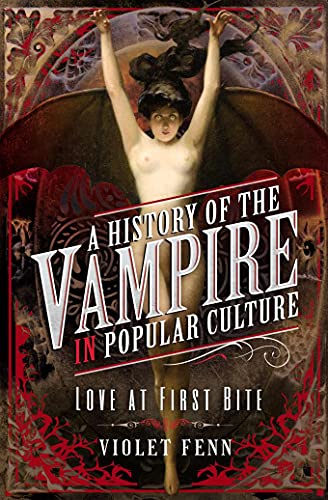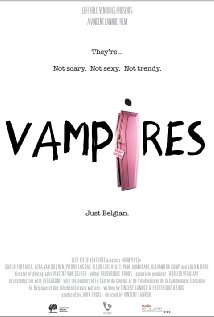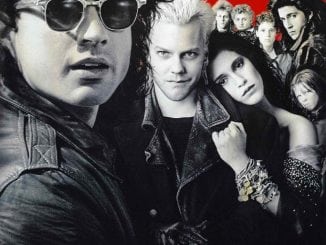
A HISTORY OF THE VAMPIRE IN POPULAR CULTURE
by Violet Fenn
Published by Pen and Sword Publishing
Available in hardback and ebook
There’s something quite captivating about vampires. Their need to feed off human blood and bearing the gift, or curse, of eternal life makes them a layered character in so many ways, and they’re not always the villain of the piece. At the mercy of sunlight, crosses, garlic and wooden stakes, threats lurk around every corner, easily turning them from the predator one minute to prey the next.
The vampire genre has to be one of my favourites, perhaps because of the complexity of the characters and moral dilemmas the vampires must deal with in their lifetime, not to mention the sexuality and relationships that most vampire films explore. After all, nobody, not even vampires, want to live a life of solitude throughout their hundreds of years’ existence. In A HISTORY OF THE VAMPIRE IN POPULAR CULTURE, British author Violet Fenn delves into the lore, science and history behind vampires in movies, television and literature to analyse what it is that fascinates us about our the vampyr.
A HISTORY OF THE VAMPIRE IN POPULAR CULTURE opens by exploring vampire lore in countries and cultures around the world, delving back hundreds of years to analyse what might have been perceived as a bloodsucking creature. Violet Fenn delves into reports and tales about these creatures before detailing the origins of the vampire in literature. Having no idea about any literary works published before Bram Stoker’s Dracula that mentioned the bloodsucking creatures of the night, I found this chapter the most interesting to read. The concept of these creatures has certainly developed over time, and the links to real-life rumours and tales of victims of vampires makes for a enthralling read. The way in which Fenn has amalgamated her research paints an intriguing picture of how the legend of the vampire has evolved over the years and how slight changes have been made for a better story or, in some odd cases, for worse.
A self-confessed goth even to this very day, Violet Fenn has a deep passion for the vampire which is evident through her writing and research within the book. I enjoyed her dissection of different portrayals of one of the most popular literary vampires put to film, Dracula, from Christopher Lee’s Count to Gary Oldman’s roles as young, old and beastly Dracula. Even Steven Moffat and Mark Gatiss’ concept of Dracula, played by Claes Bang, which aired on the BBC in 2020, gets a hefty dissection. But it’s not just Count Dracula that’s explored. Television series like, True Blood and Being Human, the Discworld characters of Terry Pratchett, and movies like The Hunger, What We Do In The Shadows and An Interview With A Vampire are wonderfully analysed with their depictions. And, for those who like vampires that sparkle, Twilight does get its time in court (though it’s clear Fenn isn’t exactly a fan of the series nor the direction that it takes).
Broken down into a number of chapters, Fenn examines aspects of the vampire lore in popular culture, from sexuality to immortality, as well as a look at their morals and how they appear to fit in with their human counterparts. It’s a fascinating deep-dive into the genre that I hadn’t perhaps thought about in so much detail before but Fenn’s analysis certainly stimulates the grey cells and made me start to think about my own favourite vampiric depictions and their characteristics. It’s only then I began to appreciate the crafting of the characters and the development of the vampire in pop culture over time, seeing how the species has evolved in various hands. It made me think about a film called We Are The Night, a brilliant little vampire horror from 2010, and how those vampires contrasted to others we’ve seen on film before. Fenn also interviews a variety of individuals, including Wayne Hussey, frontman of 80’s goth band The Mission, What We Do In The Shadows star Jonny Brugh and Bram Stoker’s relative Dacre Stoker, among others.
Violet Fenn’s love for the vampire shines through in this marvellous 165-page hardback, complimented by a selection of photos and artwork, and is difficult to put down once you start exploring the theme. Her attention to detail and analysis of various depictions through pop culture makes you see things from a different perspective and invites you to appreciate the vampire characters in cinema much more than you may already do. For any film or literary fan, this book is a worthy talking piece, especially for those who like to dissect and analyse film (as we do here at HCF). Whilst I’ve always been a fan of vampires, on and off the screen, this book has made me love them even more. Reading Fenn’s breakdown of the genre has encouraged me to assess the various characteristics and drives of my favourite fictional vampires, to see how each differentiate in order to build a more complex character than I may have first perceived. It certainly makes me want to revisit some of my favourite vampire films so that can I appreciate them with an entirely new perspective.
If you crave a book you can sink your teeth into that provides a thoughtful, well-researched and passionate, insightful exploration of the vampire genre, I can heartily recommend A HISTORY OF THE VAMPIRE IN POPULAR CULTURE.





Be the first to comment